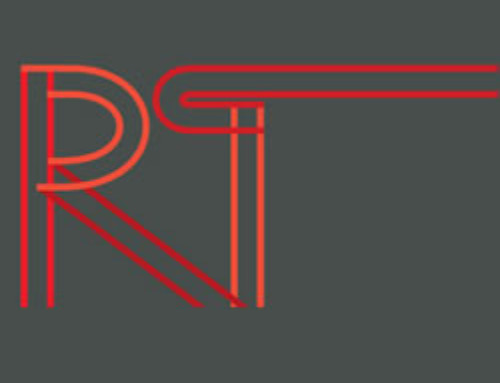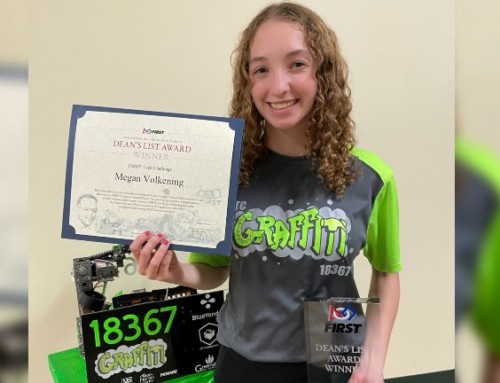[ad_1]
SEATTLE–(BUSINESS WIRE)–Exploring hands-on challenges in science, technology, engineering and
math (STEM) is increasing girls’ interest in engineering robots for
competitions, according to initial data from Girl
Powered, a global movement launched by The Robotics Education &
Competition (REC) Foundation and VEX Robotics, and supported by Google.
Google is expanding its partnership with the REC Foundation by
supporting a new series of Girl Powered Workshops, with the first
workshop being held March 16-17 from 9 am-5 pm (GST) at its headquarters
in Seattle.
The two-day workshop in Seattle will feature Google employees helping
students build VEX EDR robots and put them to the test with the VEX
Robotics Competition Turning Point game challenge.
“We are thrilled to welcome the Girl Powered workshop to Google for a
weekend of learning and fun. The REC Foundation is working to increase
access to STEM education for young girls right here in Seattle and it’s
programs like this that are preparing them for the workforce of the
future. It’s been exciting to see them continue to expand their reach
over the last three years and our Google volunteers are excited to work
along side this talented group of girls. We can’t wait to see what they
build with the VEX EDR robots!” said Susie Vowinkel, Google Ads Director
and Google Seattle Site Lead.
Girl Powered workshops allow girls and boys to explore their interests
and build robots alongside mentors in a comfortable, supportive
environment while building their confidence, teamwork and communication
skills.
Since Girl Powered launched in 2016, female participation in VEX
Robotics has increased steadily from 23 percent in 2016 to 37
percent in 2018. Girl Powered aims to change the face of STEM, as
females only represent 24
percent of the STEM workforce in the U.S.
“The initial results of Girl Powered is promising, but we know we have a
long way to go in changing the face of STEM to be more reflective of the
global, diverse community. We are committed to increasing participation
in Girl Powered through partnerships with Google and the Girl Scouts,
among others,” said Dan Mantz, CEO and chairman of the board, The REC
Foundation.
Future Girl Powered workshops are being planned for this summer in
Boston, MA; Austin, TX; and Google’s headquarters in Mountain View, CA.
Google also supports The REC Foundation by sponsoring an online
challenge for Girl Powered VEX Robotics participants in elementary,
middle school and high school. This year’s online challenge asked
students to share how they have created a more inclusive environment on
their team.
The top prize, a $750 vexrobotics.com gift certificate and automatic
team qualification for the 2019 VEX Robotics World Championship, was
awarded on March 10, 2019, for the VEX IQ Challenge category to Team
10142A, Green Tiger from Honolulu, HI and for the VEX Robotics
Competition category to Team
7983W, Centennial Cyberhawks from Bakersfield, CA.
For National Women’s History Month, Girl Powered is honoring female
accomplishments in STEM history with a new line of Girl Powered
T-shirts. The T-shirts feature the Girl Powered logo and inspirational
quotes from female STEM heroes, with 20 percent of sales supporting Girl
Powered programs. For more information, visit: https://shop.spreadshirt.com/VEX-Robotics/girl+powered?q=T292261.
About the Robotics Education & Competition Foundation (REC) Foundation
The
Robotics Education & Competition (REC) Foundation’s mission is to
increase student interest and involvement in science, technology,
engineering, and mathematics (STEM) by engaging students in hands-on,
affordable, and sustainable robotics engineering programs.
About VEX Robotics
VEX Robotics is a leading provider of
educational and competitive robotics products to schools, universities,
and robotics teams around the world. The VEX IQ and VEX EDR product
lines span elementary, middle, and high schools with accessible,
scalable, and affordable robotics solutions. Beyond science and
engineering principles, a VEX Robotics project encourages teamwork,
leadership, and problem solving among groups. It allows educators to
easily customize projects to meet the level of students’ abilities as
they inspire & prepare the STEM problem-solvers of tomorrow.
[ad_2]
Source link





Leave A Comment
You must be logged in to post a comment.